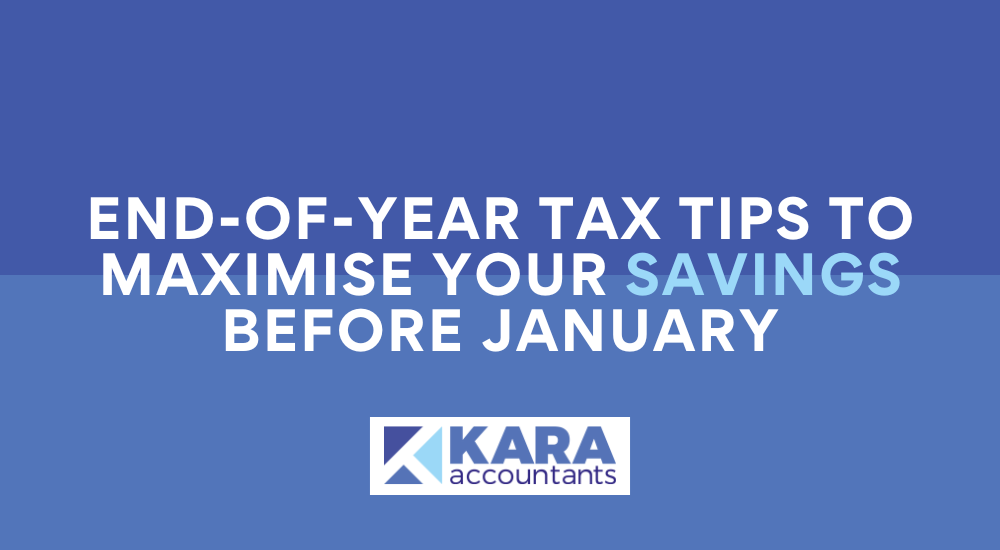
End-of-Year Tax Tips to Maximise Your Savings Before January
As the year winds down, it’s the perfect time to take a proactive approach to your taxes. A few strategic moves now can help you minimise your tax liability, boost your savings, and set yourself up for financial success in the New Year. Here are some essential end-of-year tax tips to consider:
1. Maximise Your Retirement Contributions
Contributing to retirement accounts is one of the most effective ways to reduce your taxable income. For 2023, you can contribute up to £20,000 to an ISA or maximise contributions to your pension plan, taking advantage of any employer-matching contributions.
Pro Tip: If you’re self-employed, consider contributing to a Self-Invested Personal Pension (SIPP) to benefit from tax relief.
2. Take Advantage of Charitable Donations
Making donations to registered charities not only supports good causes but also offers tax relief. Keep records of all your contributions—whether monetary or in-kind—to ensure they’re deductible.
Pro Tip: Use Gift Aid for eligible donations to increase the value of your contribution and your tax savings.
3. Utilise Tax-Efficient Investments
Review your portfolio for opportunities to capitalise on tax-efficient investments such as Venture Capital Trusts (VCTs) or Enterprise Investment Schemes (EISs). These can provide significant tax relief while diversifying your portfolio.
Pro Tip: Consult a financial advisor to understand how these options align with your long-term financial goals.
4. Check Your Capital Gains Tax Allowance
You have an annual Capital Gains Tax (CGT) allowance that lets you realise a certain amount of profit tax-free. If you’ve sold investments or assets this year, ensure you’ve used up your allowance to minimise your tax liability.
Pro Tip: Consider offsetting gains with losses from underperforming assets.
5. Review Your Business Expenses
If you’re a business owner or self-employed, now is the time to review and claim allowable expenses. These could include office supplies, travel, professional fees, and even a portion of your home utility bills if you work from home.
Pro Tip: Organise receipts and invoices to make filing taxes smoother and avoid missing deductions.
6. Use Tax-Free Allowances
Make the most of tax-free allowances, such as the Personal Savings Allowance and Dividend Allowance. These allow you to earn interest or dividends up to a specific threshold without paying tax.
7. Plan for Tax-Deferred Opportunities
If you’re nearing the higher income threshold, consider deferring income into the next tax year to avoid moving into a higher tax bracket. This strategy works well for bonuses or other discretionary income.
8. Claim Work-Related Expenses
If you’re an employee, check whether you can claim tax relief for job-related expenses, such as professional memberships, uniform costs, or mileage. These deductions can lower your taxable income.
9. Finalise Your Tax Documents
Avoid the January rush by organising your financial documents now. Gather receipts, statements, and any correspondence related to income, deductions, and investments. Staying organised will make tax filing less stressful and help you avoid penalties.
10. Seek Professional Advice
Tax laws can be complex, and end-of-year planning is the perfect time to consult an accountant or tax advisor. They can help you identify additional opportunities to save and ensure you’re fully compliant with HMRC regulations.
By taking these steps before the year ends, you’ll not only save money but also start the New Year with greater financial clarity and peace of mind. Don’t wait until January—start implementing these tips today to make the most of your hard-earned money.

This Post Has 0 Comments